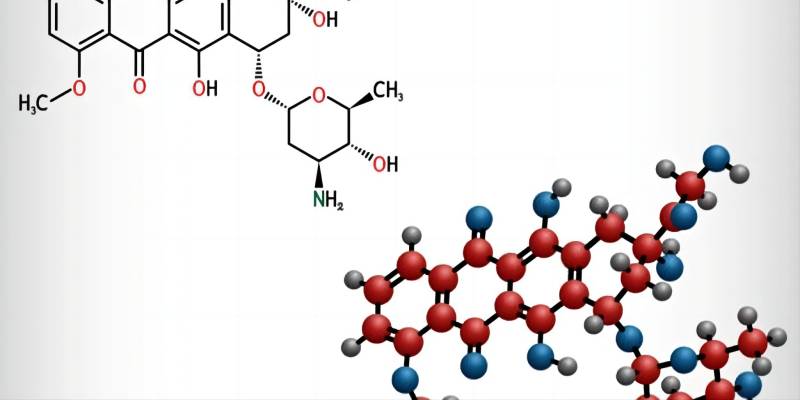Nourish to Flourish: How the 9 Essential Amino Acids Impact Your Body
Feb 26, 2024 By Madison Evans
In the complex tapestry of nutrition, proteins play a pivotal role, often hailed as the building blocks of life. Within this protein panorama, the 9 essential amino acids emerge as critical nutrients that our bodies cannot synthesize on their own. Compellingly, these amino acids are the cornerstone of various physiological processes, from muscle repair and growth to hormone production. Our food choices become the sole source of these indispensable compounds, underscoring the importance of a balanced diet rich in high-quality proteins. By delving into the roles and effects of each essential amino acid, we gain a deeper understanding of how they influence our overall wellness, equipping ourselves with the knowledge to make informed dietary decisions that foster health and vitality.
Defining Amino Acids: Understanding the Basics

Amino acids are organic compounds that contain both an amino group (-NH2) and a carboxyl group (-COOH). These building blocks of proteins are essential for sustaining life, as they perform various vital functions within the body. Amino acids come in different shapes and sizes, with each type having a unique structure and role to play.
The role of amino acids in the body:
Amino acids are the fundamental units that make up proteins, which are essential for the growth and repair of tissues. When we consume food containing protein, our bodies break down these molecules into individual amino acids. These amino acids then go on to form different types of proteins depending on the body's needs.
9 essential amino acids
There are 20 standard amino acids that make up the vast array of proteins found in our bodies. Out of these, nine amino acids are classified as essential, meaning that our bodies cannot produce them on their own and must obtain them from external sources. These nine essential amino acids are:
1. Histidine
Histidine is crucial for the growth and repair of tissues and the synthesis of blood cells, which is why it is particularly important during infancy and childhood for proper development. It also plays a pivotal role in the production of histamine, a neurotransmitter that is vital for immune response, digestion, and sleep-wake cycles. Inadequate histidine levels can disturb these critical processes, highlighting the significance of including histidine-rich foods like meat, poultry, fish, and dairy in one's diet.
2. Isoleucine
Isoleucine, a branched-chain amino acid, holds a special place in the realm of metabolism and muscle physiology. It is heavily concentrated within muscle tissue and is integral for muscle metabolism, repair, and growth. Isoleucine is also pivotal in the regulation of blood sugar levels and stimulates hormone release. As a result, an adequate intake of isoleucine is essential for athletes, bodybuilders, and individuals who engage in physical activity regularly. Food sources like nuts, seeds, eggs, fish, lentils, and poultry provide rich amounts of this nutrient, helping to ensure the body's resilience and optimal functioning.
3. Leucine
Sharing a similar role with isoleucine and valine, leucine is another branched-chain amino acid that plays an essential role in muscle protein synthesis, glucose metabolism, and wound healing. It also acts as a signaling molecule that triggers the body's anabolic processes, leading to enhanced muscle growth and repair. As such, leucine is a crucial nutrient for athletes and fitness enthusiasts who aim to build lean muscle mass. Food sources like beef, chicken, fish, eggs, beans, and nuts are rich in leucine, making it relatively easy to meet daily requirements.
4. Lysine
Lysine is an essential amino acid that plays a critical role in the production of collagen, a protein that forms the structural framework for skin, bones, cartilage, and tendons. It also plays a role in calcium absorption and hormone regulation. A deficiency in lysine may lead to impaired bone growth, anemia, and reduced immunity. To ensure adequate intake of this essential amino acid, one can consume foods like meat, poultry, fish, dairy, legumes, and quinoa.
5. Methionine
Methionine is a sulfur-containing amino acid that plays an essential role in the synthesis of proteins and various other compounds in the body. It also aids in the detoxification of heavy metals and may help lower cholesterol levels. However, methionine must be balanced with other amino acids to prevent toxic build-up. Animal-based foods like beef, fish, poultry, and eggs are rich in methionine.
6. Phenylalanine

Phenylalanine is a precursor to various neurotransmitters that regulate mood and cognitive functions. It plays an essential role in the production of dopamine, epinephrine, and norepinephrine, which are vital for brain health and mental well-being. Additionally, phenylalanine aids in the synthesis of melanin, a pigment that gives skin and hair its color. Foods like soy products, eggs, dairy, meat, fish, and whole grains are rich sources of this essential amino acid.
7. Threonine
Threonine is necessary for maintaining proper protein balance in the body and is involved in various physiological processes, including immune response, fat metabolism, and collagen production. It also aids in preventing fatty build-up within the liver and can alleviate symptoms of anxiety and depression. Foods rich in threonine include chicken, turkey, fish, peanuts, lentils, and quinoa.
8. Tryptophan
Tryptophan is a precursor to serotonin, a neurotransmitter that regulates mood, sleep, and appetite. It is also involved in the production of niacin (vitamin B3), which supports healthy brain function and skin health. A deficiency in tryptophan may lead to symptoms like depression, irritability, and insomnia. One can obtain tryptophan from foods like meat, fish, eggs, dairy products, nuts, and seeds.
9. Valine
Valine is another branched-chain amino acid that plays a crucial role in muscle maintenance, repair, and growth. It also promotes proper mental functioning by aiding in the production of neurotransmitters such as GABA (gamma-aminobutyric acid) and glutamate. Additionally, valine may help regulate blood sugar levels and prevent muscle fatigue during exercise. Food sources like meat, dairy, legumes, and whole grains provide ample amounts of this essential amino acid.
Conclusion
Essential amino acids play a critical role in maintaining the body's overall health and function. By incorporating a variety of protein-rich foods into our diets, we can ensure an adequate intake of these essential building blocks for optimal well-being. So, make sure to include a diverse range of animal and plant-based sources of protein in your meals to meet your daily requirements of essential amino acids. So, whether you are an athlete looking to build muscle or simply aiming for a healthy lifestyle, essential amino acids should not be overlooked in your nutrition plan. Let's make sure our bodies have everything they need to thrive by consuming a balanced and nutritious diet.







